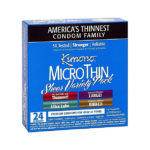
Media Bistro recently asked for our input on their advice piece, “How to Tell Sex Stories” — it’s part of their “How to Pitch” series (pretty handy for freelance writers who sign up for membership). They talked to many sex and relationship writers and editors, so there just wasn’t room for a lot of our responses in this particular piece. Below is our unabridged advice.
Given your experience contributing to the likes of Glamour, New York Magazine, Marie Claire and so on, plus your books, what is the key to successfully pitching an article/book about sex-related content to a magazine or website, even a publisher?
The hardest thing about pitching a story about sex to a magazine is trying to come up with something new to say about sex, or at least coming up with a new WAY to say it. That’s what everyone wants — even the women’s magazines that seem to run the same articles about sex just with different titles. We hear the words “fresh” and “not cliche” a lot. The key is not necessarily coming up with a new erogenous zone or position or technique — good luck with that! — but just finding a new way to package/present the material so it makes sense to people in a way it never has before. For example, we recently wrote a piece on male and female sexual anatomy, and there wasn’t really any new information in there about anatomy itself — it was more the way we made comparisons between the various man and lady parts. It helped readers think about anatomy in a different way.
How should writers go about doing research, and in general, coming up with good, fresh ideas for their pitches so they don’t end up in the editor’s trash/spam folder?
Keeping up with the latest scientific and academic research on sexual topics is always a good place to start. And make sure you follow a piece of research all the way to its source, to get the real story, rather than just relying its write-up in a newspaper or magazine. Sex studies are particularly prone to being twisted into catchy headlines that promise more than the actual research found. (But the good flip side of that is that it’s *really* easy to find sex research online, because reporters love writing about it — and just because something has already been covered somewhere in a 300-word superficial news piece, doesn’t mean you can’t turn it into a longer feature or advice article.) We have a few student interns each semester who help us keep on top of sex news, trends, and research, from pop culture to literature to science. But there’s no reason why a writer can’t do that research on their own — we just need a high volume of research because we have two daily blogs (EMandLO.com and Naked Love on the Sundance Channel’s Sunfiltered blog). The important thing is to keep on top of the research on a regular basis — not just when you need to come up with a pitch — so you can start making your own calls about trends, etc.
What is one of the biggest mistakes you can make and should avoid when pitching an article about sex-related content?
You can’t send the same exact pitch out to different magazines, even if you think they’re kind of similar publications. Like condoms, one size does NOT fit all. Really familiarize yourself with the content — especially the recent content — of the magazine you’re pitching too. You don’t want to pitch an idea too similar to something that they recently ran, but you also want to make sure your focus, tone and suggested format are in line with their usual standards (and for many magazines, especially women’s magazines, they have very strict formulas for what works for them). For instance, while one magazine might be okay with you referencing the male prostate in a sexual context, others won’t go near anal play with a ten foot butt plug. Some publications are much more comfortable with a humorous take on sex than others. And some publications are much stricter about their definition of a “trend” story than others!
What are some resources for conducting your own research on sex-related trends?
It sounds simple, but we’re big fans of just using news.google.com and experimenting with different key word searches (sex research; dating study; and so on). We also like scholar.google.com for finding original research — though you have to search hard there to find complete papers for free (often you’ll just be able to read the abstract and the site will charge you to read the full study). We also read a lot of U.K. newspapers online (Guardian, Telegraph, etc.) — they seem to cover a lot more sex research stories than the U.S. papers. In addition, we’ve made a lot of contacts over the years at various conferences and by interviewing various experts for articles, so we always encourage those people to get in touch when they have news to share.
What are some tips for writing about sex with humor?
Avoid double entendres at all costs — there are far more intelligent ways to write about sex with humor! And in general, unless you’re writing for a publication that appreciates this sort of thing (we won’t name names here), avoid the sort of wink-wink, nudge-nudge locker room humor, too. We think the best approach is simply not to take sex too seriously — but the humor should be mature, if that makes sense. It’s hard to describe really — it’s a kind of know-it-when-you-see-it sort of thing. Immature humor makes the reader think that you’re embarrassed to be talking about the topic (and therefore they should be too) which is almost always a bad thing. We hope this helps! Also, we tend to tone down the humor in magazine pitches — that can come later, and is too often misconstrued in a simple pitch. As a general rule, we have found that men’s magazines are more open to funny writing about sex than women’s magazines. And U.K. magazines in general tend to be more open to approaching sex with humor (especially the men’s magazines there).
What should your pitch headline say so it doesn’t automatically go in to an editor’s spam folder?
If we’re writing to a new editor (where we’re not sure how sensitive their spam filter is) we’ll try to keep the email as PG as possible. Sometimes we’ve even had to write s*x to get something through (and this was to the sex editor at a magazine — spam filters are very aggressive these days!).
What parting advice can you offer to those looking to write on this specific subject?
Don’t confuse erotica with sex writing. Yes, you’re covering a topic that may deal with salacious issues, but you rarely want your writing to be titillating (unless you’re writing for Penthouse). Also, for most publications, there’s a firm line between reported articles and personal essays. So don’t assume you’ll have to write about your own sex life if you want sex to be your beat. We very very rarely do.
















